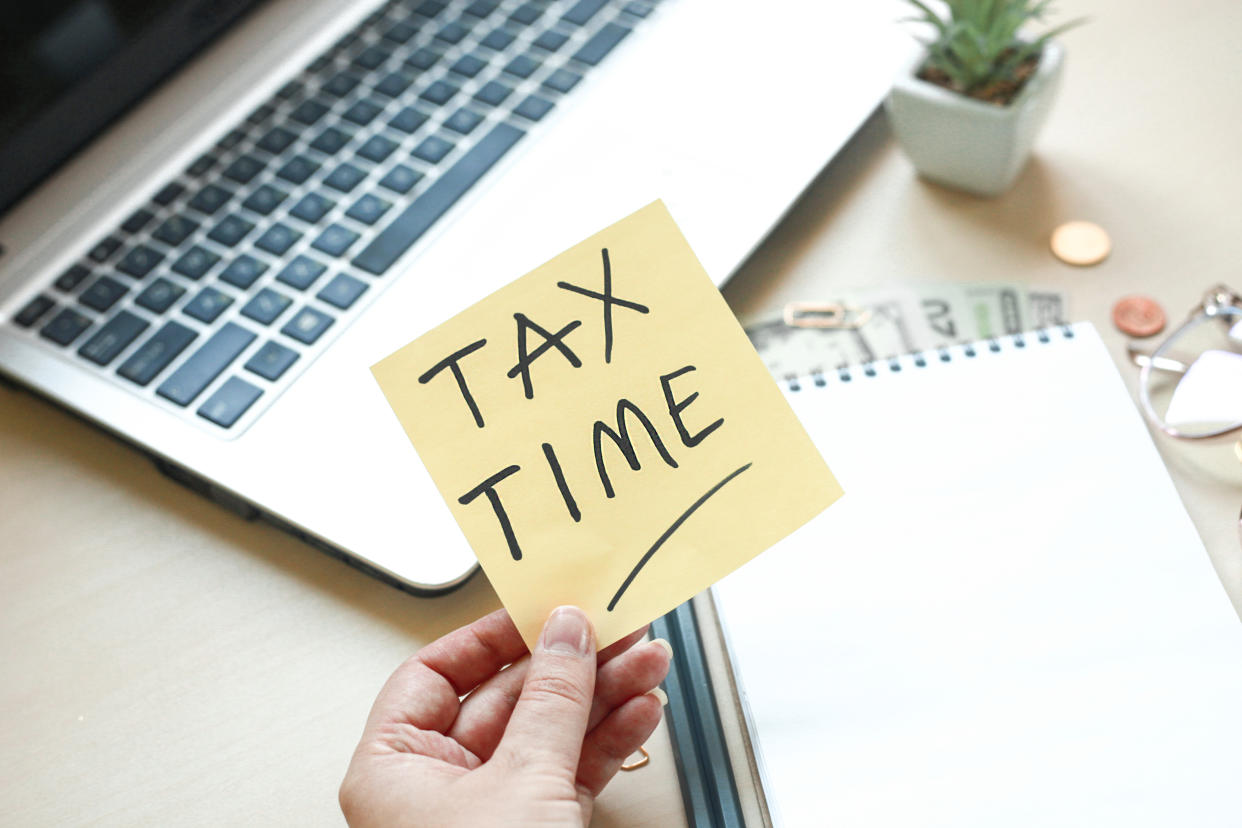Tax filing season begins as IRS starts accepting returns
The nation’s tax filing season begins Monday, as the Internal Revenue Service starts accepting and processing 2023 federal tax returns. Taxpayers have until April 15 to file without an extension.
The IRS expects to receive nearly 130 million individual tax returns by the deadline, with more than 93% of those expected to be e-filed. You can file forms such as 1040, 1040A, and 1040EZ electronically or mail a paper return to the agency. But the fastest and easiest way to file and receive refunds is through electronic filing and direct deposit.
The IRS generally issues refunds within about three weeks after returns are electronically filed — even faster if you choose direct deposit instead of a mailed check.
The tax agency has been busy making improvements to its filing system after receiving funding from the Inflation Reduction Act. Taxpayers can now utilize new upgrades including enhanced digital correspondence, expanded in-person hours at Tax Assistance Centers, reduced wait times to IRS call centers, and an improved "Where’s My Refund?" tool.
"As our transformation efforts take hold, taxpayers will continue to see a marked improvement in IRS operations in the upcoming filing season," IRS Commissioner Danny Werfel said in a press release.
Here are other key dates during tax filing season you should know.
Full coverage: Taxes 2024 — Everything you need to file your taxes on time
Wednesday, Jan. 31
Businesses and companies must provide W-2 forms to employees by Jan. 31, either electronically or by mail. Reach out to your employer if you don’t receive a copy of your W-2 by early February. If your employer is not responsive, contact the IRS at 800-TAX-1040 for assistance.
Businesses and companies also must provide certain 1099 statements to recipients by Jan. 31, either electronically or by mail. The 1099 forms include:
1099-NEC for nonemployee compensation
1099-MISC for miscellaneous income
1099-DIV for dividends and distribution
1099-INT for interest income
1099-R for retirement distributions
Reach out to your 1099 payers if you don’t get your 1099 statements by early February, or call 800-TAX-1040 for assistance.
Thursday, Feb. 15
By law, the IRS must wait until after Feb. 15 to issue tax refunds for taxpayers who have claimed either the earned income tax credit (EITC) or the additional child tax credit (ACTC). If you claimed these credits, filed your return electronically, and selected direct deposit, the earliest you could expect your tax refund is around Feb. 27 as long as there was no issue with your return.
Additionally, companies must provide brokerage 1099 statements to recipients by Feb. 15, either electronically or by mail. These forms include 1099-B (brokerage statements) and 1099-S (real estate sale or exchange).
Friday, March 15
Partners and investors in partnerships should file their partnership return by this day. Partnership returns include Schedule K-1s, forms that show an individual’s share of earnings, losses, and dividends. The Schedule K-1s are for the taxpayers to keep unless otherwise instructed, and taxable amounts are included in the taxpayers' returns as income.
Partnerships can request a six-month extension to file their tax returns. This request is separate from extensions on individual tax returns.

Monday, April 15
Tax Day!
For most Americans, this is the deadline for filing a tax return electronically, postmarking a paper return, or requesting an automatic extension. Maine and Massachusetts residents have until April 17 thanks to Patriots’ Day and Emancipation Day holidays.
If you need more time, you can file for an extension, by choosing the option online while making your tax payments or by mailing your payment in along with Form 4868. If you request an extension, you get six additional months to file your tax return, but you still must pay any estimated tax liability by April 15. Otherwise, you could face penalties.
You can also make 2023 contributions to a traditional IRA, Roth IRA, SEP IRA, Health Savings Accounting (HSA), or solo 401(k) by this date. You can also withdraw excess contributions if your tax return has not yet been filed.
Read more: 3 ways retirees can save on taxes
If you have more than $10,000 in a foreign bank account(s) at any time during the calendar year, you must file the Foreign Bank and Financial Accounts, or Form 114, by this date. If you had one or more household employees in 2023, you must file Schedule H and pay household employment taxes along with your 2023 tax return.
Taxpayers who make estimated payments should make their first installment for 2024 by April 15.
Monday, June 17
U.S. taxpayers living abroad, or on military duty outside of the US, should have filed their tax returns or requested a four-month automatic extension by this date. You can request the extension by making tax payments online or mailing your payment in along with Form 4868.
Taxpayers who make estimated payments should make their second installment for 2024 by this date.
Monday, Sept. 16
Partners and investors who requested a six-month extension to file their partnership return must file the return by this date. The partnership should also distribute Schedule K-1s to individuals by the time of filing.
Taxpayers who make estimated payments should make their third installment for 2024 by this day.
Tuesday, Oct. 15
If you requested a six-month extension, this is the final deadline to file your 2023 federal tax return. The deadline also applies to US taxpayers living abroad who requested the four-month extension.
This is also the deadline to make 2023 contributions to SEP IRA and solo 401(k) if the employer filed an extension by April 15.
Rebecca Chen is a reporter for Yahoo Finance and previously worked as an investment tax certified public accountant (CPA).
Read the latest financial and business news from Yahoo Finance
